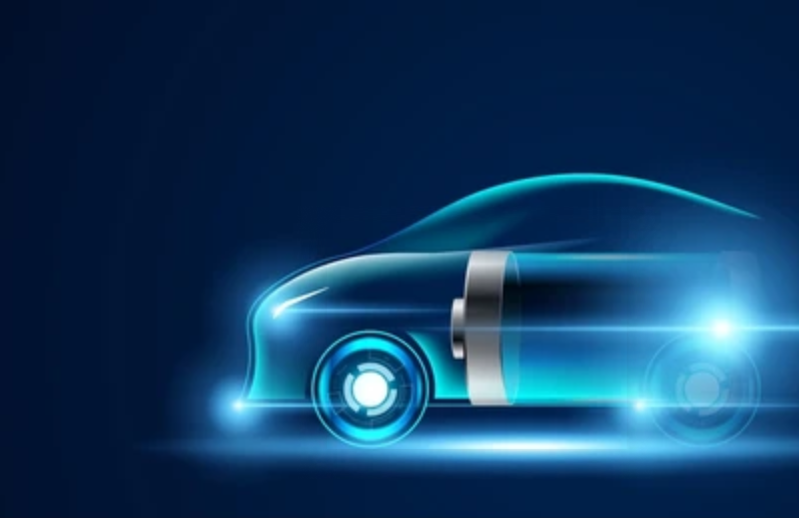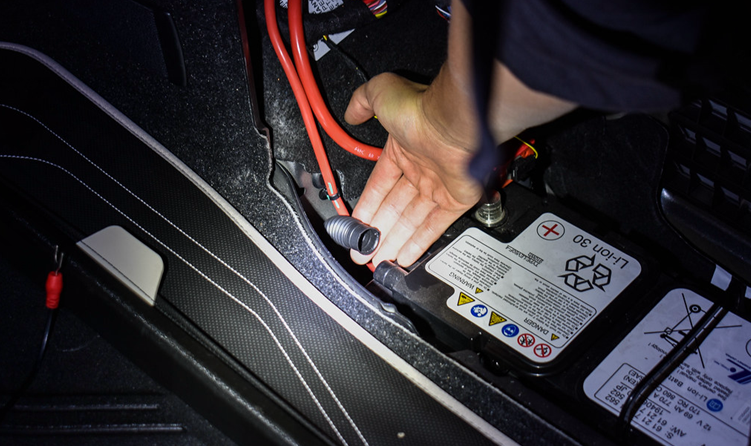Powering the Way: Unleashing the Potential of Electric Scooter Batteries
Electric scooters have rapidly gained popularity as a convenient and eco-friendly mode of transportation in urban areas. With zero emissions and low operating costs, these vehicles have become an attractive alternative to traditional gas-powered scooters or cars. However, the success of electric scooters depends heavily on their batteries, which play a crucial role in determining their performance and range. In this article, we will explore the potential of electric scooter batteries and the advancements that could revolutionize this industry.
The current generation of electric scooter batteries primarily relies on lithium-ion technology. These batteries offer a good balance between energy density, weight, and cost, making them suitable for various applications. However, they have certain limitations that hinder the widespread adoption of electric scooters. One of the main challenges is the limited range offered by these batteries. Most electric scooters can only travel between 15-30 miles on a single charge, which may not be sufficient for longer commutes or delivery services.
To address this issue, researchers and engineers have been tirelessly working to enhance battery technology. One promising solution is the development of advanced lithium-ion batteries with higher energy density. These batteries can store more energy within the same physical size, allowing electric scooters to travel farther on a single charge. Several companies are already in the process of developing such batteries, and it is expected that they will be commercially available in the near future.
Another area of focus is battery charging technology. Currently, it takes several hours to fully charge an electric scooter battery. This extended charging time hampers the usability and convenience of these vehicles. To overcome this challenge, fast-charging solutions are being explored. Fast-charging technologies can significantly reduce the charging time, making electric scooters more practical for daily use. This could be achieved through advancements in battery chemistry, charging infrastructure, or the implementation of wireless charging systems.
The integration of smart battery management systems (BMS) could greatly improve the performance and lifespan of electric scooter batteries. BMS monitors and controls the charging and discharging processes, ensuring that the battery operates within safe limits. It also provides real-time information about the battery\’s health and performance, allowing users to make informed decisions. By optimizing the battery usage and preventing overcharging or deep discharge, BMS can extend the battery life and enhance the overall efficiency of electric scooters.
In addition to technological advancements, the infrastructure supporting electric scooters also needs to be developed. A network of charging stations should be established, similar to what we see with electric cars. These charging stations should be conveniently located in urban areas and offer fast-charging capabilities. This would help alleviate range anxiety and encourage more people to switch to electric scooters.

The potential of electric scooter batteries extends beyond personal transportation. Delivery services are increasingly relying on electric scooters for last-mile deliveries, reducing their carbon footprint and operating costs. However, the limited range and charging time often pose challenges for these businesses. By leveraging advanced battery technology and charging solutions, electric scooters can become a game-changer in the logistics industry. They can enable faster and more efficient deliveries while contributing to a greener and more sustainable future.
The potential of electric scooter batteries is vast and promising. Advancements in battery technology, charging solutions, and smart management systems are revolutionizing the electric scooter industry. These improvements will enhance the performance, range, and usability of electric scooters, making them a preferred choice for urban commuting and delivery services. With continued research and development, electric scooter batteries could unlock a new era of clean and efficient transportation.
-
 Introduction: Communication plays a vital role in our daily lives. Whether it is for personal or professional purposes, the need for efficient and reliable communication equipment is paramount. One of the key components that significantly impacts the performance of communication devices is the power source. This article explores the benefits of lithium batteries in enhancing communication efficiency and discusses their...Læs mere
Introduction: Communication plays a vital role in our daily lives. Whether it is for personal or professional purposes, the need for efficient and reliable communication equipment is paramount. One of the key components that significantly impacts the performance of communication devices is the power source. This article explores the benefits of lithium batteries in enhancing communication efficiency and discusses their...Læs mere -
 The popularity of van life and nomadic living has been on the rise. More and more people are ditching traditional homes in favor of the freedom and adventure that come with living on the road. However, one of the challenges faced by these adventurous nomads is finding a reliable and efficient power solution for their camper vans. This is where...Læs mere
The popularity of van life and nomadic living has been on the rise. More and more people are ditching traditional homes in favor of the freedom and adventure that come with living on the road. However, one of the challenges faced by these adventurous nomads is finding a reliable and efficient power solution for their camper vans. This is where...Læs mere -
 Introduction: Communication base stations are the backbone of our modern wireless communication networks. They enable the transmission and reception of signals between mobile devices and the network infrastructure. These base stations require a reliable and efficient power source to ensure uninterrupted communication services. In recent years, lithium battery technology has emerged as a promising solution for optimizing the performance of...Læs mere
Introduction: Communication base stations are the backbone of our modern wireless communication networks. They enable the transmission and reception of signals between mobile devices and the network infrastructure. These base stations require a reliable and efficient power source to ensure uninterrupted communication services. In recent years, lithium battery technology has emerged as a promising solution for optimizing the performance of...Læs mere -
 The advancement in technology has brought about a significant improvement in power solutions. One such innovation is the high-capacity 12V 100AH LiFePO4 battery. This lithium iron phosphate (LiFePO4) battery is revolutionizing the way we store and utilize power efficiently. The 12V 100AH LiFePO4 battery offers a high energy density and a long lifespan compared to traditional lead-acid batteries. This...Læs mere
The advancement in technology has brought about a significant improvement in power solutions. One such innovation is the high-capacity 12V 100AH LiFePO4 battery. This lithium iron phosphate (LiFePO4) battery is revolutionizing the way we store and utilize power efficiently. The 12V 100AH LiFePO4 battery offers a high energy density and a long lifespan compared to traditional lead-acid batteries. This...Læs mere -
 As the core energy storage device of modern electric vehicles, lithium-ion automotive batteries play an important role in promoting the development of the new energy vehicle industry with their unique performance and advantages. So what is so unique about lithium-ion automotive batteries? The following is a detailed analysis from four aspects. 1. High energy density One of the most important...Læs mere
As the core energy storage device of modern electric vehicles, lithium-ion automotive batteries play an important role in promoting the development of the new energy vehicle industry with their unique performance and advantages. So what is so unique about lithium-ion automotive batteries? The following is a detailed analysis from four aspects. 1. High energy density One of the most important...Læs mere -
 Where technological advancements are happening at an unprecedented rate, the need for efficient and reliable power sources has become paramount. One such power source that has revolutionized the way we live and work is the lithium-ion battery. This cutting-edge technology, with its high energy density, long cycle life, and lightweight design, has become the preferred choice for a wide range...Læs mere
Where technological advancements are happening at an unprecedented rate, the need for efficient and reliable power sources has become paramount. One such power source that has revolutionized the way we live and work is the lithium-ion battery. This cutting-edge technology, with its high energy density, long cycle life, and lightweight design, has become the preferred choice for a wide range...Læs mere -
 Introduction In the world of automotive engineering, battery technology has come a long way. With the rise of electric and hybrid vehicles, the need for high-performance, lightweight battery systems has never been greater. Lithium starter batteries are becoming increasingly popular among performance enthusiasts and professional racers due to their unparalleled power-to-weight ratio and exceptional durability. In this article, we will...Læs mere
Introduction In the world of automotive engineering, battery technology has come a long way. With the rise of electric and hybrid vehicles, the need for high-performance, lightweight battery systems has never been greater. Lithium starter batteries are becoming increasingly popular among performance enthusiasts and professional racers due to their unparalleled power-to-weight ratio and exceptional durability. In this article, we will...Læs mere

